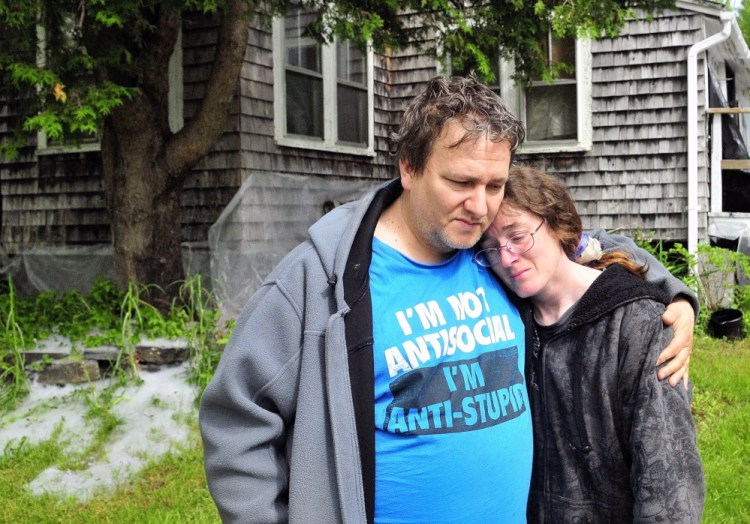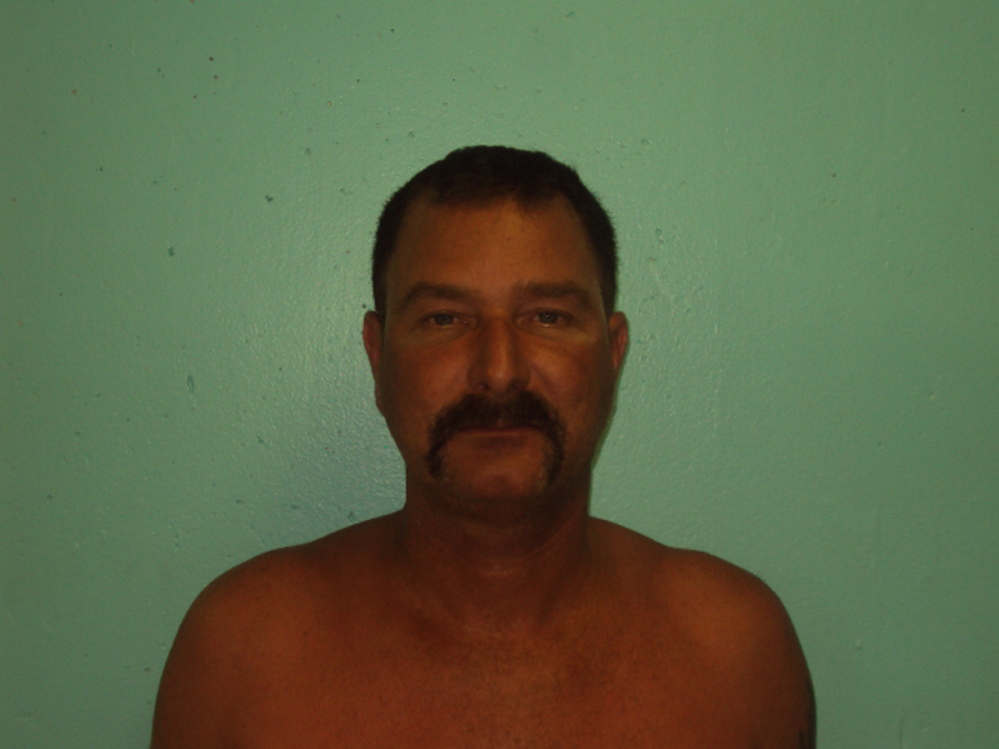AUGUSTA — In the predawn hours of May 31, 2014, Ronald J. Oberst set fire to a home on Pine Knoll Road in Winthrop, sending four people fleeing into the dark.
Oberst, who had recently returned to the area from Tucson, Arizona, pleaded guilty in January 2016 to two counts of arson in connection with that blaze as well as a charge of theft for taking a vehicle belonging to a Winthrop woman and to operating without a license.
On Monday, after more than a year in Kennebec County’s Co-Occurring Disorders and Veterans Court program, Oberst was able to withdraw his guilty pleas to all but one arson charge.
During the brief hearing at the Capital Judicial Center, Oberst was sentenced to eight years in prison, with all but an initial 259 days suspended which he already served, and placed on three years probation. He also was ordered to pay $8,000 restitution, which he has already done.
That was the result of his successfully completing the specialty court program.
On Monday, Oberst sat at a table in the courtroom next to his defense attorney, Michael G. Keefe, and spoke about his experience in a program that the founding justice once labeled as “probation on steroids.”
“Thank you for the program,” Oberst, now 50, of Winthrop, said. “I’ve learned a lot, and I’ve come a long way. It’s helped me a lot, and I’m grateful for the program.”
District Court Judge Evert Fowle, who was district attorney when he helped co-found the program in 2005, complimented Oberst for completing the program.
“If I’m confident anyone’s found the path to success, it’s you,” he said.
Fowle stepped down briefly from the bench to shake Oberst’s hand during the sentencing hearing in front of about a dozen other people, many of them participating in the specialty court, who also applauded Oberst.
Fowle urged Oberst to return to the court occasionally to let people know how he was faring.
Anne Archibald, the Veterans Justice Outreach Coordinator for the program, said she had learned a lot from Oberst and from his desire to do well in spite of a significant mental health history.
“On paper you don’t look good,” she said. “But you were so honest with the court and with yourself, it gave me hope.”
Assistant District Attorney David Spencer, who works with the program as well, said that nighttime arsons used to be capital offenses in Maine. Spencer said Oberst was previously very ill, but is now quite happy.
Conditions of probation prohibit Oberst from contact with the family whose house was burned and the owner of the vehicle that was stolen.
He also is prohibited from using drugs, alcohol and having firearms and must continue with substance abuse and mental health counseling.
Betty Adams — 621-5631
Twitter: @betadams
Send questions/comments to the editors.




